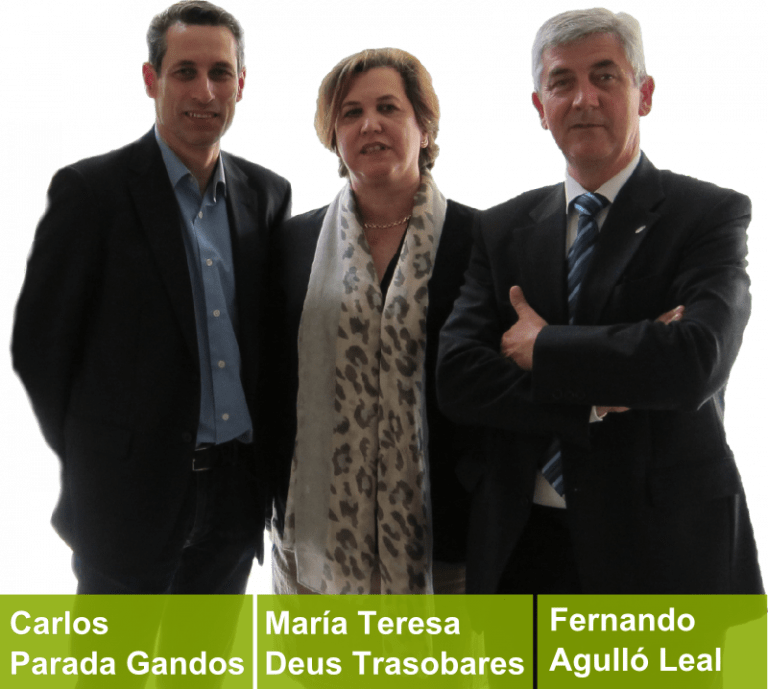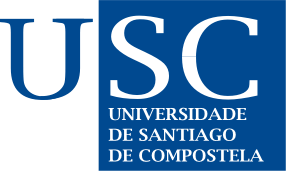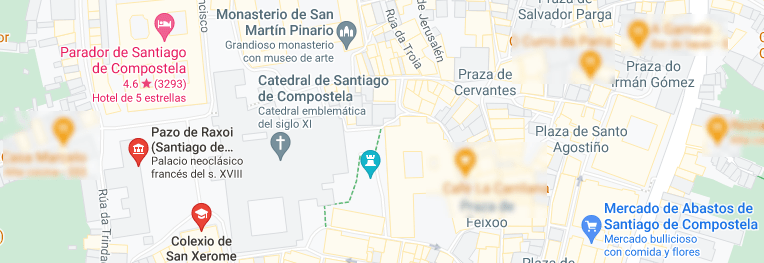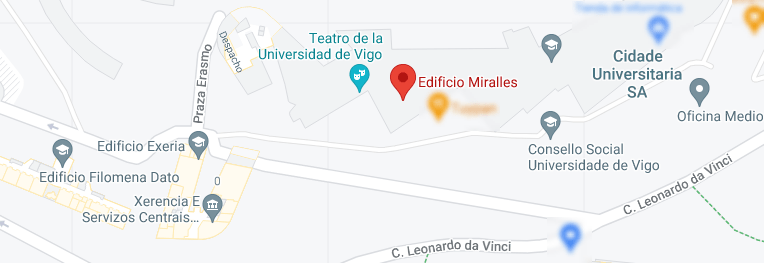Job Orientation
Specific course of Advanced Postgraduate Course in Job Orientation
Edition 2019
Specific course of Advanced Postgraduate Course in Job Orientation
2nd Edition
The Advanced Course in Job Orientation, organised by the CIXUG with the support of the Regional Ministry of Economy, Employment and Industry and the Ministry of Labour, Migration and Social Security, continue to develop the specific training curriculum for the training of personnel dedicated to job orientation, delving in a specialised and particular way into relevant, current and exciting aspects that allow the acquisition of new skills for the performance of their professional work in the best possible conditions.
University of A Coruña’s title

Co-financed by

For this reason, the course it is indicated for people who have passed the Postgraduate Specialization in Job Orientation in any of its editions, or for job orientation professionals who want to deepen their specialization, as it addresses some of the content already introduced previously, but the level of depth is even greater, in view of the consolidation of competences and the definition of strategies and itineraries for its practical and immediate application in the daily work of the participants.
Therefore, the aim is not only to consolidate competencies and incorporate new ones but also to achieve an immediate applicability that is reflected in daily performance of the people who take part in the advanced course and, by extension, the oriented people they work with and the results they achieve in their active job search processes.
Objectives
The Advanced Course in Job Orientation has the following main objective continue developing the specific training curriculum for the training of personnel dedicated to job orientation, providing specialised and specific in-depth training in relevant, current and interesting aspects that enable the acquisition of new skills for the performance of their professional work in the optimal conditions possible.
Therefore, it is not only consolidate skills and incorporate new ones, but to achieve one immediate applicability which is reflected in the daily performance of the people who take part in the advanced course and, by extension, in the oriented people they work with and in the results they achieve in their active job search processes.
Continuing with the approach that is maintained throughout the training scheme, it supports the actual progress of the three fundamental aspects that have been worked on in recent years:
- Methodology and techniques for Open Job Coaching performance.
- Support and advice for self-employment and entrepreneurship.
- ICT strategies and tools for open job orientation
In this way, a continuous contribution is made to consolidating the three essential perspectives of both the orientation model defined in the decree on the SNE’s standard portfolio of services and in the Open Job Orientation model defined by the Regional Ministry of Economy, Employment and Industry for Galicia.
Target persons
This advanced course is oriented to the following profiles:
- People who have obtained the postgraduate title of University Specialist in Job Orientation, as a result of having passed the Postgraduate Specialisation in Job Orientation.
- Job Orientation professionals who want to deepen their knowledge of the specific contents covered in the course.
Note: in filling the available places, priority will be given to people who have completed the Postgraduate Specialisation in Job Orientation and, as a second criterion, the order of registration will be used.
Important note: personnel who are currently performing orientation tasks under the ORDER of 10 January 2019 establishing the regulatory bases and the public call for the granting of subsidies for the hiring of technical staff to carry out job orientation activities in the 2019 financial year must indicate this to the Technical Secretariat of the course when formalising their enrolment so that they can coordinate with the technical services of the Regional Ministry of Economy, Employment and Industry the management of their schedule on Fridays when there are face-to-face sessions during the duration of the course, as additional help to achieve maximum benefit from the course.
Technical requirements for tracking
As this is a blended learning course with an important component of e-learning through the CIXUG Moodle platform, it is essential that participants have a computer with:
- The up-to-date version of your browser (preferably Mozilla Firefox)
- Webcam
- Speakers
- Microphone
- Access to the internet
Since many of the formative and evaluative of the advanced course require access and interaction through the network, as well as the creation of digital and video artefacts; also remember that the contents of the different subjects will not be downloadable until the end of them, given that their visualization on the platform will also be taken into account as a criterion of use.
In addition, and given the critical use of ICT tools and new technologies applied to employment management, participants may be required to install specific programmes or plug-ins on their computer, which in any case will be free of charge. Likewise, to make participation and optimal use of certain course activities possible, participants may be required to register on social platforms or networks, creating real professional profiles.
In the same way, participants should come to the face-to-face sessions with a personal computer or, alternatively, with an equivalent mobile device (tablet or smartphone) that allows access to the internet via WIFI and interaction with the Moodle platform and the different tools used, as some of the proposed tasks will require intervention throughout the session with other services and spaces.
In any case, the specific requirements that each teacher needs concerning their activities and the instructions for downloading and installing them will be published on the Moodle platform of the course sufficiently in advance to enable their correct installation and availability.
Training contents
The advanced course involves 27 hours of face-to-face training, to be held on Friday afternoons (4:00 p.m. to 8:30 p.m.) and Saturday mornings (9:30 a.m. to 2:00 p.m.) in Center for New Technologies Galicia dependent of the Ministry of Economy, Employment and Industry, located in Santiago de Compostela.
The training is completed by adding distance learning to the classroom sessions, assessment and revision activities and the students’ work to reach a total of 150 hours that constitute the course.
The face-to-face sessions will develop practical workshops and sessions to consolidate key concepts, resolve doubts and effectively influence the knowledge acquired, with an evaluation activity for each of the areas of specialisation that make up the course.
The distance learning content will be developed on the CIXUG’s Moodle platform, so those attending must have the necessary equipment and resources (see the section on technical requirements for following the advanced course).
The course programme is made up of the following topics, organised into areas of specialisation:
AREA 1. COMPANY PROSPECTING AND LABOUR INTERMEDIATION IN EMPLOYMENT PROGRAMMES
- Theme 1: basics of job search and job intermediation
- Theme 2: methodologies for job prospecting and intermediation
AREA 2. ECONOMIC AND FINANCIAL ANALYSIS TO DETERMINE THE VIABILITY OF A PROJECT FOR ENTREPRENEURSHIP
- Theme 3: financial analysis of the business plan
- Theme 4: economic analysis of the business plan
AREA 3. ICT STRATEGY FOR OPEN JOB ORIENTATION: CONTENT CURATION
- Theme 5: algorithms and the filter bubble
- Theme 6: content curation
- Theme 7: planning. Content search and selection
- Theme 8: adding value and publication.
Location of the face-to-face sessions
The face-to-face sessions will be held at the Centro de Novas Tecnoloxías de Galicia of the Regional Ministry of Economy, Employment and Industry, located in Santiago de Compostela:

Centro de Novas Tecnoloxías de Galicia
- Rúa Airas Nunes, s/n – Conxo
- 15702 – Santiago de Compostela
GPS coordinates:
- W 8º 33′ 16,35”
- N 42º 51′ 47,21”
When it will take place
The advanced course will run from 18 October, combining distance learning with face-to-face training on Friday afternoons from 16.00 to 20.30 and Saturday mornings from 9.30 to 14.00. Signatures will be checked both at the entrance and exit of the face-to-face sessions, so we ask for punctuality in the access to these sessions.
The face-to-face sessions will take place at Centro de Novas Tecnoloxías de Galicia (Santiago de Compostela), with the following themes:
- 18/10/2019: prospection of companies and job intermediation (1st part)
- 19/10/2019: prospection of companies and job intermediation (2nd part)
- 25/10/2019: business plan feasibility analysis (1st part)
- 26/10/2019: business plan feasibility analysis (2nd part)
- 08/11/2019: an effective content curation strategy (1st part)
- 09/11/2019: an effective content curation strategy (2nd part)
Conditions for approval
To pass the course, the student must:
- Attending face-to-face sessions.
- Pass all the evaluation activities planned for the course with a final average of 5 or more.
The criteria to be applied in the distance part will be:
- The learning progress of each participant will be assessed through the different activities, which will be evaluated and scored by the tutor in charge. The following will be checked: the reading of the course content; the realisation of the activities in which the acquisition of the course content is verified; and the participation in individual and group activities in the classroom.
- Participation in classroom discussions and proposals will be valued.
Other aspects will also be considered, such as evidence of the acquisition of competencies and perseverance in following the course.
The final grade will be PASS or FAIL, and will be determined by the application of the following weightings:
| # | ACTIVIDADE AVALIATIVA | PONDERACIÓN |
|---|---|---|
| 1 | Tarefas avaliativas do ámbito da orientación laboral aberta | 30% |
| 2 | Tarefas avaliativas do ámbito da empresa e o emprendemento | 30% |
| 3 | Tarefas avaliativas do ámbito das TIC para a orientación laboral | 30% |
| 4 | Participación e seguimento do curso | 10% |
Teachers of the Introduction to Open Job Orientation course
The teaching team that is going to develop the Course of Introduction to Open Job Orientation is the same that develops the programme of the Postgraduate Specialisation in Job Orientation so that the contents are perfectly coordinated, and the level of the contents is adjusted in each case to the level foreseen in the course.
The teaching team is made up of the following people, who act not only as instructors but also as tutors in e-learning:

FERNANDO AGULLÓ LEAL
ACADEMIC DIRECTOR OF THE COURSE, SPECIALIST IN ENTREPRENEURSHIP
Fernando Agulló Leal holds a degree in Economics and Business Studies from the University of Santiago de Compostela, a PhD in Economics from the University of A Coruña, a Master’s Degree in Business Creation from the University of A Coruña, a Senior Technician in Occupational Risk Prevention and Project Manager from the Project Management Institute.
His professional experience was not exclusively focused on teaching, as he also worked as an economist or senior technician in the General Directorate of Commerce of the Xunta de Galicia until his incorporation as teaching and research personnel at the University of A Coruña, as well as contributing articles to La Voz de Galicia in the Mercados supplement. He was also Director of the Jorge Juan Chair.
Currently, in addition to acting as Academic Director of the Postgraduate Course of Specialisation in Job Orientation, he is responsible for teaching the subjects taught at the University of A Coruña:
- “Entrepreneurship Initiative” in the Master’s Degree in Labour Management and Leadership
- “Introduction to Economics” in the Degree of Labour Relations and Human Resources
- ” Economy and Enterprise” in the Degree in Labour Relations and Human Resources.
- “Business Creation and Management” in the Degree in Sport and Physical Education Sciences.
- Final Degree Project ( FDP) and Master’s Degree Project ( MDP)
Mª TERESA DEUS TRASOBARES
TUTOR, JOB ORIENTATION SPECIALIST
Graduated in Employment Sciences, Mayte Dios Trasobares is president of “Inprega, S. Coop. Gallega”, where she works as a senior consultant.
She holds, among others, a Master’s Degree in Teacher Training for Compulsory Secondary Education, Baccalaureate, and Professional Training and Language Teaching.
Her career path is always linked to the labour market and employment. For nine years, she worked for the INEM and, later, for the City Councils of A Coruña and Ferrol, and then went on to carry out technical assistance and consultancy work for various public bodies.
You can also meet her on Linkedin.
CARLOS PARADA GANDOS
TUTOR, ICT AND SOCIAL MEDIA SPECIALIST
Carlos Parada holds a Bachelor’s Degree in Computer Science and a Postgraduate Certificate as a Professional Expert in e-Learning 2.0. Much of his professional experience was focused on the technical management of training plans and the design of training plans, evaluations and methodologies of training actions related to the ICT field and on the technical and pedagogical coordination of projects for the incorporation of technologies in the field of training.
He currently collaborates as a senior consultant and trainer with various public and private entities in the specialities of:
- Virtual learning environments (e-learning)
- Digital identity
- Teacher training
- Dynamisation of communities of practice
- Entrepreneurship support
Tweet as @carpaga. You can get to know him on about.me and on Linkedin.
Enrolment requirements
To enrol in the Advanced Course in Job Orientation, it is necessary to fill in the pre-enrolment form linked below, as well as to send an updated copy of the following documentation in computer support to the e-mail account pol@cixug.es:
- Valid identity document
- Up-to-date and valid census registration certificate (less than six months old)
- University degree (or certificate of graduation) valid in Spain
- IMPORTANT NOTE: If the number of applicants exceeds the number of places available, a copy of the university transcript of records must be submitted, as the access criterion, in this case, will be determined by the average mark on the transcript of records. If necessary, this document will be requested at a later date.
Documents submitted must be copied on both sides, and the content of the copy must be complete, clear and legible, with no corners cut off.
REGISTRATION FORM
(Registration for the 2019 edition closed)
After receiving pre-registration confirmation, you will have three working days to pay the registration fee (150.00 euros) and send a copy in the form indicated in the confirmation e-mail. If payment has not been made by this deadline, the right to reserve a place and the place will pass to the next person on the waiting list.
NOTE 1: the enrolment fee is subsidised by the co-financing provided by the Regional Ministry of Economy, Employment and Industry and the Ministry of Labour and Social Economy so that no additional discounts will be applied to this amount.
NOTE 2: qualifications that require validation in Spain will not be permissible without proof of validation.
NOTE 3: this documentation may be requested in original for verification purposes during the duration of the course or at a later stage as part of the audit process to which it may be subject by the financial institutions.
NOTE 4: for those who enrol without having completed their university degree, it is essential to hold a university degree before concluding the specialisation course to obtain the postgraduate qualification. The transcript shall not be retained between calls for applications.
Additional information
For more information of your interest in relation to the Introduction to Open Job Orientation Course, you can use the following methods:
- By sending an email to pol@cixug.gal
- By calling 611 412 116















